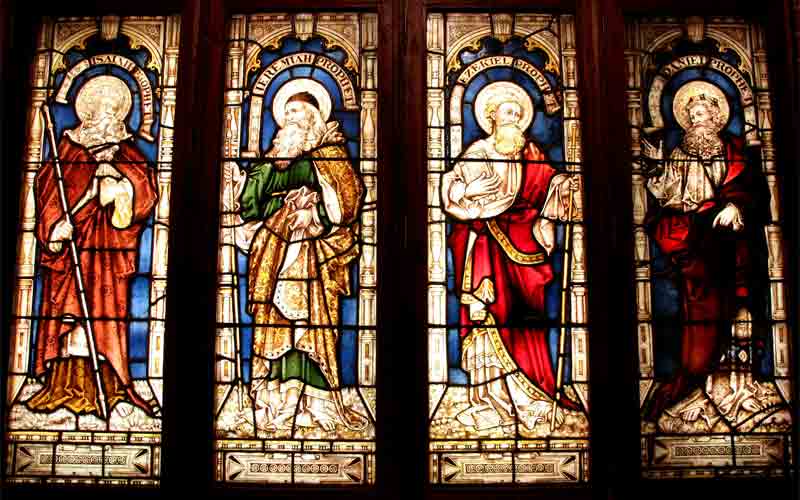Introduction:
As a pastor who has ministered in both the 20th and 21st centuries, I have begun reaching the point in my life where I can see certain trends. Years ago I was in a conversation with someone who posed the following question: "is church ministry to be designed around the needs of believers or unbelievers?" I'll admit at the time that question was posed, I had no answer. Certainly one could argue in either direction. Whenever you look at the past 75 years of American church life, it appears that many have tried to embody one or the other option.
So who is the church for? What should our church ministries be catering to?
Many churches of by-gone days opted to do everything they did to meet the needs of the church membership. To one degree there is nothing wrong with meeting the needs of people. Yet in many cases, if we were to ask the question: who is the church for? The answer from some would be mainly to serve the needs of church members.
In trying to correct an over-emphasis towards focusing only on the needs of members, some churches have opted to go in the other direction. Typically the aim is to create worship spaces that are more "user-friendly" and cater to those who are called "seekers". Seeker-sensitive approaches to church-life aim to create an environment for an unbeliever who walks into our fellowship and worship services doesn't feel threatened, guilted or uncomfortable. The architecture and ministry scheduling purposefully appeal to unbelievers and seekers moreso than believers. The faulty logic in this approach begins with the category of "seeker".
The Bible teaches that the only person who truly seeks God is the person who has been born-again by faith in Jesus Christ (John 1:12-13). People can prior to conversion express curiosity about Christianity, however the perceived benefits to them, rather than Jesus Himself, is the fuel for their curiosity. Unless the Holy Spirit is actively at work in the person's soul, showing them Jesus and their need to trust in him, no person will seek God, despite the right lighting, ease of worship services and lessening of the demands of Christianity (Romans 3:10-13).
In trying to correct an over-emphasis towards focusing only on the needs of members, some churches have opted to go in the other direction. Typically the aim is to create worship spaces that are more "user-friendly" and cater to those who are called "seekers". Seeker-sensitive approaches to church-life aim to create an environment for an unbeliever who walks into our fellowship and worship services doesn't feel threatened, guilted or uncomfortable. The architecture and ministry scheduling purposefully appeal to unbelievers and seekers moreso than believers. The faulty logic in this approach begins with the category of "seeker".
The Bible teaches that the only person who truly seeks God is the person who has been born-again by faith in Jesus Christ (John 1:12-13). People can prior to conversion express curiosity about Christianity, however the perceived benefits to them, rather than Jesus Himself, is the fuel for their curiosity. Unless the Holy Spirit is actively at work in the person's soul, showing them Jesus and their need to trust in him, no person will seek God, despite the right lighting, ease of worship services and lessening of the demands of Christianity (Romans 3:10-13).
I can recall growing up in the late 70's and 80's and having Sunday nights dedicated to singing Gospel groups, church bake sales and the like. Then in the 90's and New Millennium, attending services where there was drama productions, light shows and high-powered music. Both approaches appealed respectively to believers and moreso unbelievers. The key word in all of these approaches is "attractional ministry", whereby we are doing all we can to get as many people to come and be involved. The sincerity behind both of these approaches is unquestionable. To a certain level, churches ought to be the most inviting places to come and certainly ought to be doing all they can to reach the unconverted.
Whenever we consider the early church in the book of Acts, the audience to which the early church attempted to make a fitting envornment for was not believers, nor unbelievers, but God. Now before readers write me off, let me explain. Peter and the Apostles and the early church majored on five key areas: preaching/ministering of the Word, fellowship, evangelism, small-group ministry and songs of praise and worship. Why? To appeal to God.
Here's the point - when we aim to make God our audience, believers will be attracted and unbelievers will begin asking questions. Jesus said in John 12:32 that if He be lived high above the earth He would draw all men unto Himself. He also said in Matthew 6:33 if we seek first the Kingdom of God (which was another way of saying "seek first God") and His righteousness (the righteousness found by faith in Jesus), then everything else will be added.
Here's the point - when we aim to make God our audience, believers will be attracted and unbelievers will begin asking questions. Jesus said in John 12:32 that if He be lived high above the earth He would draw all men unto Himself. He also said in Matthew 6:33 if we seek first the Kingdom of God (which was another way of saying "seek first God") and His righteousness (the righteousness found by faith in Jesus), then everything else will be added.
Picturing the God-centered church as portrayed in the Bible
The American church needs to return to God-centered church life if it aims to reach people. The Risen Christ and His word has been and always will be the "main-draw". Why do we forget that? I don't think we forget. Rather, we think we have a better idea on how to do church. Paul reminds us in 1 Corinthians 1:17-21 that it is through the foolishness of preaching that God confounds the wisdom of this world, convicts the sinner and comforts the saint. Passages such as Acts 2:42-47 and Acts 4:32-37 and 5:17-21 teach the early patterns of both corporate worship settings around the Word and small-group ministries dedicated to building relationships with each other while discussing the Word and living life together. Included in the corporate worship of the church are such essentials as the preaching of the scriptures (1 Timothy 4:13-16); celebration of the Lord's Table (1 Corinthians 11) and what would hopefully be the baptism of new converts who had made prior professions of faith as a result of the efforts of the membership, prayer and evangelism (Romans 6:4-11). Scriptures such as Ephesians 5:19-21 and Colossians 3:16 command Christians to incorporate the Word into their expressions of singing of Psalms, Hymns and spiritual songs. Other verses in the Bible command the church, both as a corporate body and as individual believers to share Jesus in evangelism and build up one another in discipleship and Christian growth (Matthew 28:18-20; 2 Corinthians 5:15-21; Hebrews 3:12-13; Hebrews 10:24-25). This is God-centered church life performing the Word, fellowship, songs of praise and worship, small-group ministry and evangelism.
Closing thoughts:
My prayer is that readers of this post have understood the intent: to encourage and offer a correction to what can often-times be excesses in church ministry life. I myself am just as guilty of being enticed by fads. This post stands as a word to both myself and all who love the church, love Jesus and more and want to see people reached with the Gospel. The flesh always operates in excess. If anything, we need to construct our methods and motives for doing what we do around God. If we start with God, we will know His heart and then will know the people we need to reach. God in His Word has given us the right focus - Himself. If we begin with God, we will affect people along the way and thus have God as our destination. Let every church and every Christian be about the Word, singing songs of praise and worship, evangelism, getting together in small groups and thus fellowship. What America needs is a church world that is serious about getting focused once again on the Living God and His Word.






